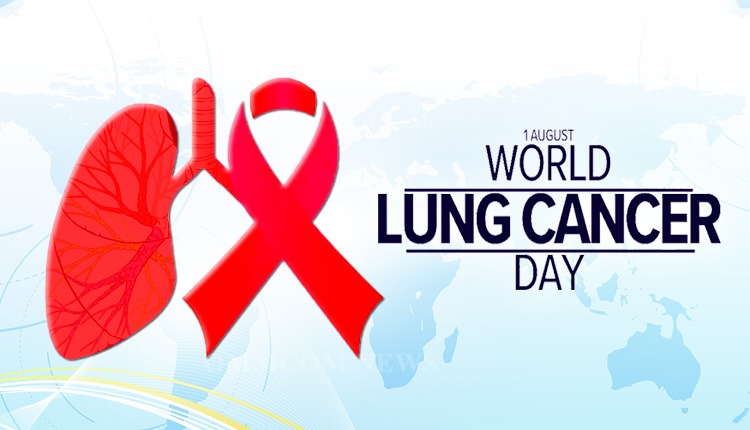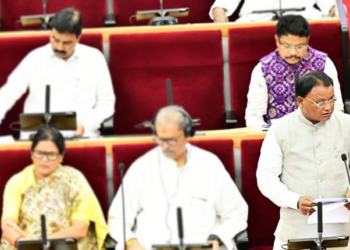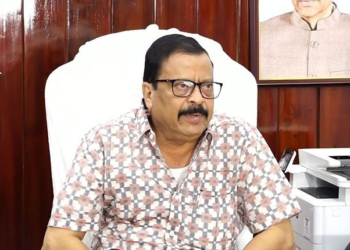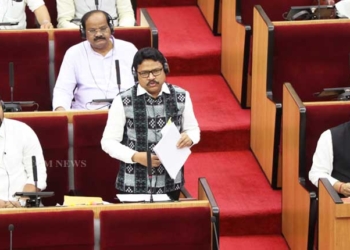Bhubaneswar: World Lung Cancer Day is observed every year on August 1, inaugurated in 2012 as a collaborative effort by the Forum of International Respiratory Societies (FIRS), the International Association for the Study of Lung Cancer, and the American College of Chest Physicians.
This annual observance aims to raise awareness about lung cancer, a leading cause of cancer deaths worldwide, claiming over 1.6 million lives each year.
By observing this day, the goal is to educate people about the risks, symptoms, and prevention strategies associated with lung cancer, ultimately reducing its devastating impact.
In an exclusive discussion with Ommcom News, Dr. Saroj Kumar Das, Senior Radiation Oncologist, MKCG College and Hospital, Berhampur, highlighted lung cancer’s causes, symptoms, and treatment.
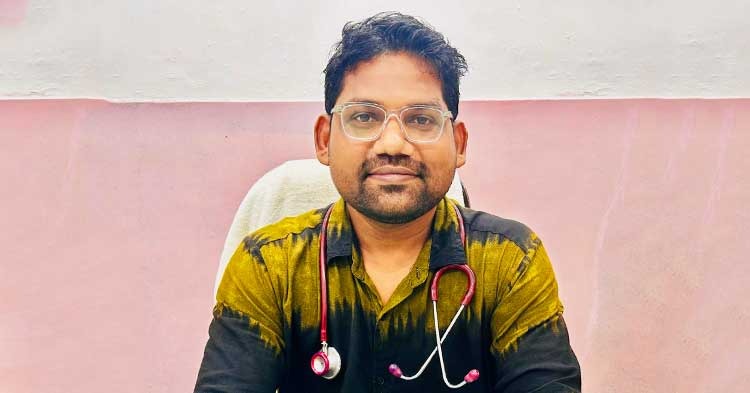
1. What are the major causes of lung cancer?
Answer: The primary cause of lung cancer is tobacco smoking, which is extremely dangerous, followed by passive smoking, which affects individuals partially exposed to smoking. About 15% of people diagnosed with lung cancer have never smoked.
Other causes include exposure to asbestos, radon, and occupational substances such as arsenic, cadmium, nickel, diesel fumes, and soot.
Factors like family history of cancer, lung fibrosis, and emphysema are also responsible for lung cancer.
2. What are the symptoms of lung cancer?
Answer: The most common symptoms of lung cancer include persistent cough, coughing up blood, chest pain, wheezing noise while breathing, weight loss, fatigue, loss of appetite, hoarseness, and swollen lymph nodes.
3. What are the methods used in diagnosing lung cancer?
Answer: Lung cancer is generally diagnosed with the help of a CT Scan, MRI Scan, PET Scan, and Biopsy for confirmatory tissue diagnosis.
4. Can lung cancer be cured? What are the treatment procedures followed to treat lung cancer?
Answer: There are four stages of lung cancer. Yes, it can be cured with early intervention in the case of stage I cancer.
The treatment procedures followed to cure lung cancer include self-care, medication, chemo/targeted therapy, surgery (including pulmonary lobectomy and wedge resection), and medical procedures like thoracotomy and radiation therapy.
Supportive care is also essential to treatment, as a patient cannot recover without strong psychological, physical, spiritual, and social support from friends and family.
5. How can lung cancer be controlled? What measures can be taken to reduce the impact of lung cancer?
Answer: Recent statistical analysis on lung cancer shows that every 1 in 16 men and 1 in 17 women in the United States suffer from lung cancer.
In India, lung cancer accounts for 5.9% of all cancers and 8.1% of all cancer-related deaths.
Yes, lung cancer can be controlled by maintaining a healthy lifestyle, not smoking, and reducing exposure to passive smoking, air pollution, and other hazardous pollutants.
On being asked about importance of spreading awareness, Dr Das said, “Spreading awareness against the rapidly growing lung cancer is need of the hour. The most essential part is to educate people and make them aware of risk factors, symptoms, and prevention strategies.”
“By organising community events, workshops at schools and colleges, social media campaigns along with free health camps for screening can significantly contribute towards the reduction of lung cancer.” Concluded, Dr Das.
By Anirbaan Hritiq




